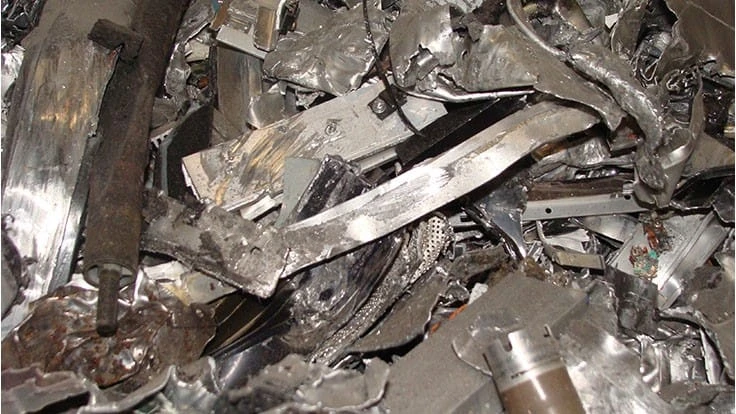
The Düsseldorf, Germany-based Federal Association of German Steel and Recycling Companies e.V. (BDSV) says it has submitted a specific proposal to the EU Commission for “mapping the scrap bonus in the EU emissions trading system (EU ETS).”
BDSV states, “A central component of this proposal is the allocation of free EU ETS certificates, with which the use of climate-friendly recycling raw material steel and stainless steel scrap as a substitute for primary raw materials is to be better promoted and rewarded in the future.” The association says the goals of the EU ETS and the Carbon Border Adjustment Mechanism (CBAM) can be reached with the help of scrap metal.
BDSV General Manager Thomas Junker comments, “Increasing the use of recycling materials is a clear objective of the EU Green Deal under the keyword ‘closed recycling economy.’ We have submitted a specific proposal for this.”
The allocation of free EU ETS certificates was a recommendation in a Fraunhofer IMW study the BDSV published in November 2021.
Currently, the BDSV says, “The ecological pressures from ore extraction in Europe have no impact on the costs of steel production and are not internalized as negative externalities and costs for the environment and society. However, when steel and stainless steel scrap is used in steel production, these external costs do not arise, as the first Fraunhofer IMW scrap bonus study has already established. Accordingly, the scrap bonus is currently only insufficiently included in the price mechanism and the steering effect of the EU ETS and/or complementary systems.”
The BDSV is proposing a new paragraph to the EU Commission to be added to Article 10a of the EU ETS document. It says its proposal “was legally checked by the Cologne-based law firm for environmental law OKL & Partner on behalf of the BDSV and sent to the responsible office of the EU Commission for International Carbon Markets on March 18, 2022.”
The BDSV also is calling for “the inclusion of hard coal, iron ore and nonferrous metal ore mining in Annex I of the EU ETS Directive in order to also record the greenhouse gas emissions from this sector.” The BDSV calls that “logical, since the EU Commission identified these sectors as the main sources of greenhouse gas emissions as early as 2019.”
Latest from Recycling Today
- Lautenbach Recycling names business development manager
- Sebright Products partners with German waste management equipment company
- WasteExpo transitions to biennial format for enhanced experiences
- Study highlights progress, challenges in meeting PCR goals for packaging
- Washington legislature passes EPR bill
- PureCycle makes progress on use of PureFive resin in film trials
- New copper alloy achieves unprecedented high-temperature performance
- Gränges boosts profits and sales volume in Q1 2025





